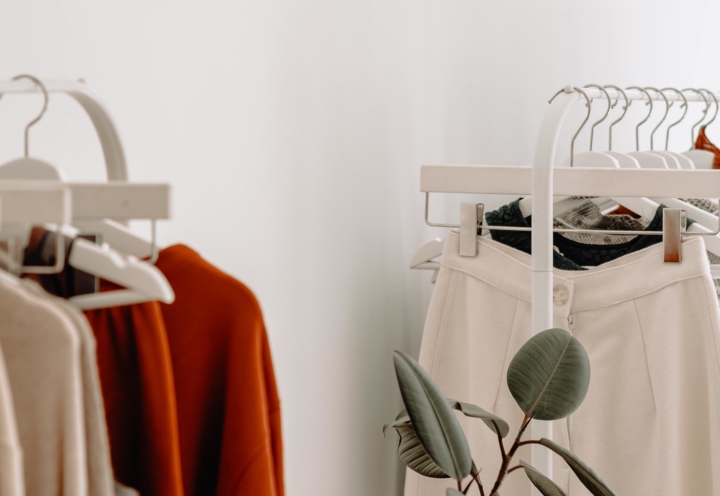The global COVID-19 pandemic proves to be a challenging time for the fashion industry in many ways. We want to bring forth the voices of the manufacturing sector into the mainstream conversation, and in the Perspectives series, we speak to our partner factories on how they are coping with current circumstances, the need for digitalization, sustainability, and more.
Perspectives is a SupplyCompass series that focuses on our supply chain partners operating at the intersection between innovation, efficiency and sustainability, to help shape more inclusive conversations in the fashion industry.
About this partner
This Partner is a leading manufacturer of corduroy and velveteen fabrics and is based in Mumbai, India with production centres across western India. Their USP is their incredibly innovative and wide product range, all centred around corduroy fabrics and their focus on sustainability.
We spoke to Ira, Head of Marketing and Sustainability at this business on their core competencies, adapting to restrictions in India, why they are embracing digital tools and how sustainability is integral to their business.
Can you explain a little about the history of your business and how it started?
Our company is around four decades old and was started by Ravi Jain who had experience working with corduroy mills in the USA. He brought the technology back home to India when there was a textile boom; we’ve expanded year after year, since then. Two decades back we procured state of the art machinery from Greece and Belgium and five years back we got air-jet looms from Japan. We can proudly say we are one of the only corduroy specialists in India. We stick to our core competency and that’s what we are known for in the industry.

You recently became certified by GOTS. Why did you decide to get this certification? What does sustainability personally mean to you?
In the entire gamut of fiber to fashion, we are somewhere in the middle in manufacturing and it’s very important for us to constantly understand the pulse of the consumer. Conscious consumption is one of the biggest consumer trends and we realized that we needed to procure the right certifications. Honestly, we were already practicing sustainability within the company, since it is more of a mindset, but we realized that we wanted to take it to the next level and give this assurance to the end consumer, to whom traceability is becoming increasingly critical. Post COVID-19, conscious consumption will take place even more.
Sustainability to us means minimizing our impact at every stage and we can proudly say we have the best practices, from reusing yarn and fabric waste to the conservation of energy.
The mindset of minimizing wastage is ingrained in our way of doing business. As a business owner, we definitely realized the fact that what’s not good for the beehive is not good for the bees. When we make a positive impact outside, it reflects within the company as well.
I think minimizing waste is ingrained in Indian culture itself, and we are traditionally very careful with the clothes we own, using and reusing them in different ways as much as possible.
What are some of your proudest achievements in terms of innovation in the industry?
We have really focused on innovation within our business. Corduroy is a seasonal business, and the AW collection usually has a demand cycle for around nine months. For the offseason, we introduced an innovative range of corduroy that can be worn in summer. This includes a range of feather-light corduroy that is only 135 gsm. We also have a range of COOL finish fabrics that makes the wearer feel three degrees cooler than the outside temperature. Our range of velveteen fabrics is especially innovative as they have the plush feel of velvet and come with the added features of drapability, stretch, and breathability. We also have a range of denim-cord fabrics, corduroy with the look and feel of denim, and a smaller water footprint.
Every year we make sure that when the customers are ready we provide them with a huge range of products and we like to break their mindset about corduroy being a thick weave product. We have produced so many blends, dobby designs, and more than 200 varieties of fabric; people not familiar with corduroy are usually amazed at how much we do with it.
Your product offering is mainly fabric associated with winter collections. How are you adapting your business in this uncertain time?
We are adapting every day as there is so much uncertainty. I don’t think anyone saw this coming and we literally shut down overnight. The beginning of the year is the peak season for us. Our orders were coming in, in mid-February and that was our peak production time. We actually had an excellent year with large orders coming in until we had to shut.
Our business has seen a pretty big impact during the lockdown and I think we have struggled as business owners to understand how to go about things as work-from-home has never been a concept for us. But we are looking at this time as a reset period; we are streamlining many of our processes, upskilling our staff and rethinking marketing strategies. As a business owner, you are so ingrained in day to day activities, that you don’t have the time to step back and rethink things. We are in that momentum right now to sharpen our processes and be ready for anything else that comes up. We don’t know if many orders are going to come through or be on hold, but we are in a positive space, more robust and ready for whatever may happen in the future.
We are looking at this time as a full reset period; we are streamlining many of our processes, upskilling our staff, and rethinking marketing strategies. As a business owner, you are so ingrained in day to day activities, that you don't have the time to step back and rethink things.
The fashion industry is always on full throttle and most people don’t have the time to pause and think about how to do things differently. So at the moment, whether the industry likes it or not, it’s being forced to rethink its system of doing things.
What are some of the ways you are supporting your workers?
We completely understand our workers are the backbone of the firm and we would be nothing without them – this is ingrained in the culture of our company. Honestly in the beginning, because there was so much uncertainty and fear, we wanted to make sure we were in constant communication with our employees and our lines were completely open for anyone with concerns. We wanted to basically ensure everyone was okay, which they are, and that they all have a place to stay. One of our feeder factories recently reopened so some of them stay at the factory itself, where their food and lodging are taken care of. For the employees of our other factories which haven’t reopened, some of them live very close by and we offered them a place to stay when the factories shut, but they are comfortable as they are.
We’ve also provided health insurance and though it is not a government norm, we have stepped up and ensured that not just COVID-19 is covered but any pre-existing health conditions as well. We are doing everything in our capacity to take care of them.
We completely understand our workers are the backbone of the firm and we would be nothing without them – this is ingrained in the culture of our company.
What are the biggest challenges in your supply chains at the moment?
The challenge is definitely uncertainty. We don’t know what is going to come in, in terms of raw materials, and what is going out, in terms of demand, or when we are going to open. The country had been divided into different coloured zones (red, orange, green) based on the number of COVID-19 cases and it is a good initiative by the government as they can’t open up the country fully, but through a staggered approach can start to do so. Many of our yarn suppliers are in the remote areas (orange and green zones) and we are hoping they will reopen before us. We know some yarn suppliers who have already restarted production, and we hope that as soon we open we have access to raw material. We have a feeder factory in Daman which is luckily a green zone, where weaving and some processes happen and they have restarted production. Our dyeing and finishing plant is in the red zone so we will be starting work there later, but we hope that everything else gets streamlined well before we start so we don’t have a problem.
What changes do you think we will be seeing in the fabric and apparel industry once this pandemic is over and what do you hope to see?
As a business, it has given us time to reset and rethink our ways of working. Our world is in a different place right now and a lot of human impact on the planet has reduced. That has hit us hard in every way and we realize that for any sort of consumption, we will need to reduce those impacts. I think the trend around sustainability is escalating and I hope that the focus towards fast fashion reduces, where you simply buy, use, and throw your garments. I hope we will buy with good intentions, where we want to keep and use garments for a long time and invest in good quality fabric and clothing.
Also, consumers’ lifestyles and priorities have changed. There is going to be an increase in consumption in e-commerce and comfort and hygiene are the biggest concerns; we are already working on initiatives like antimicrobial and anti-bacterial finishes. We are also going to continue with online meetings and we are keeping all this in mind when we speak to customers.
What digital tools and technology do you use at the moment to manage the production processes? What sort of technology would you like to see being developed that will make your operations easier?
Our weaving machines and air-jet looms are state-of-the-art and semi-smart. They have microprocessors and a smart interface that provide us some data on input and output. That is linked to our cloud computing system that shows us in what stage of production the fabric is and how it is linked to a particular customer. That is something that is very well-integrated.
In terms of managing the whole production, we can do a lot more. Corduroy has multiple stages so the machines don’t actually talk to each other as it goes between the different stages of weaving, brushing, cutting, etc. It would be good to have technology that could seamlessly integrate the whole production process.
Going forward there is going to be much less travel and physical presentations to customers. The way we market and present our fabrics will also go fully digital. We are waiting for some great tools to come out because that is going to be the need of the hour for any fabric manufacturer.
And finally, how do you think converting to digital ways of working can be more beneficial to your business?
I think it’s been very eye-opening for us as we never thought a manufacturing mill could do any work from home. We did struggle as soon as the lockdown was announced as we didn’t have any preparations ready. It was completely new to us as we are so used to being in the middle of the madness of production, all the time. We’ve definitely come to realize that through all the tech tools available we have managed to get a lot of work done. It’s also about minimizing the impact on the world – do we really need to travel to work every day? It’s something we are rethinking, as even as production restarts we may still have to work from home for some time. So this time has sharpened our skills while people aren’t as scared of technology anymore. It’s actually made life a lot easier and I couldn’t imagine the lockdown without all the digital tools available to us.








